Here are the spices—all tomato friendly—that I sprinkle on the tomatoes: (L to R) garlic powder, dulse flakes, sea kelp seasoning, basil, and garlic and herb.
Because the dehydrator mats are perforated, allowing lots of spices to fall through to the counter, I put down waxed paper beneath the trays to catch the overflow spices:
I then pour the spice mix into an empty spice bottle to use next time. (When I get a large enough empty container -- like the garlic shaker in the picture above -- I'll go ahead and make a mix of all the five spices to use when dehydrating tomatoes or preparing things like hummus or pasta sauce or as a potato or pasta sprinkle.)
My dehydrator has five shelves, but there is a larger model that has nine shelves. Here are three shelves of tomato slices ready to dehydrate, the second picture showing all five shelves:
The dehydrator has a thermostat that controls the temperature of the circulating warm air that dries out the food. The goal of dehydrating is to dry the food slowly (at a low enough temperature) so as to preserve the enzymes -- usually 115 degrees F. or less. I usually set the thermostat at 95 degrees.
You can see in the above picture that the tomato skin (on these half-dried tomatoes) is very much evident on each slice. As anyone who has cooked tomatoes knows, tomato skins come off when heated, separating from the meat of the tomato creating a not-so-desirable effect. And it will happen when these dehydrated slices are mixed into, say, a hot pasta sauce that is cooking. To prevent that from happening, I add the dehydrated slices last -- turning off the heat, putting the tomatoes in the pasta sauce, then covering the pan. The heat and steam in the pan will soften and hydrate the tomatoes but not so much that the skins separate off the slices. Before serving, the tomatoes can be folded into the sauce and they will be soft enough to mix in.
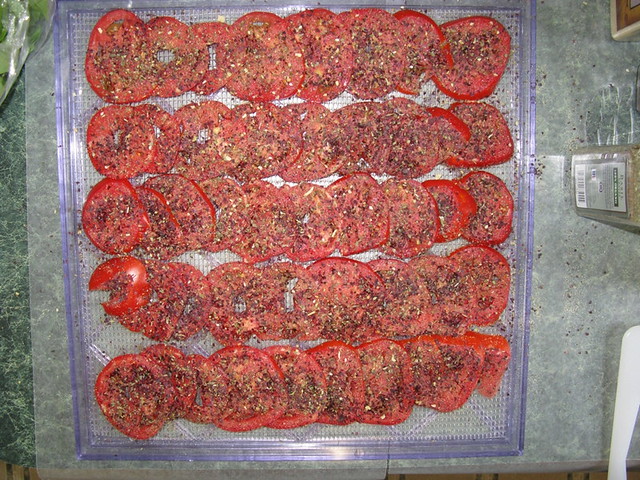
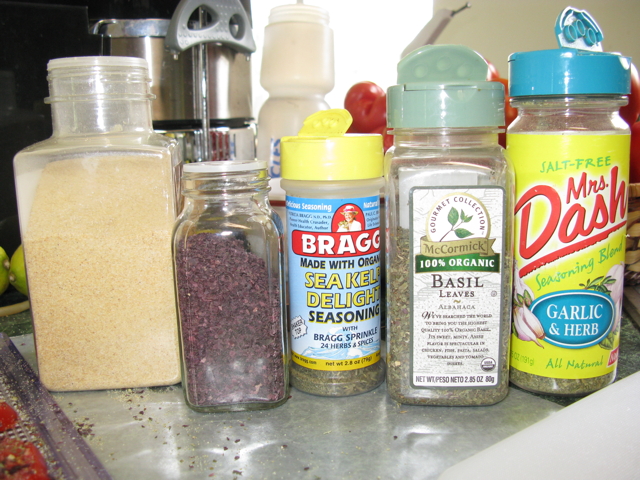
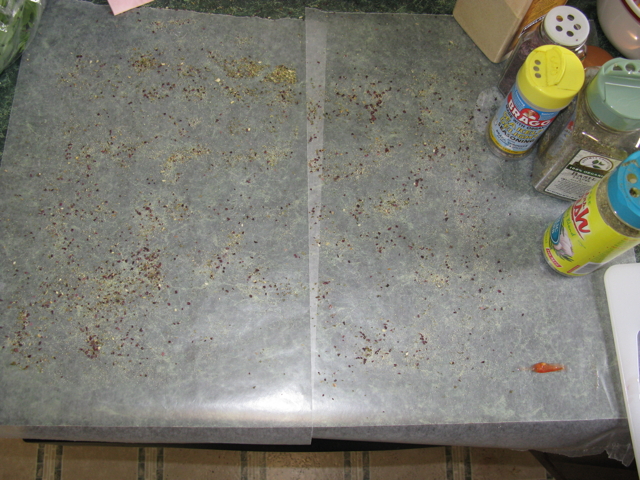
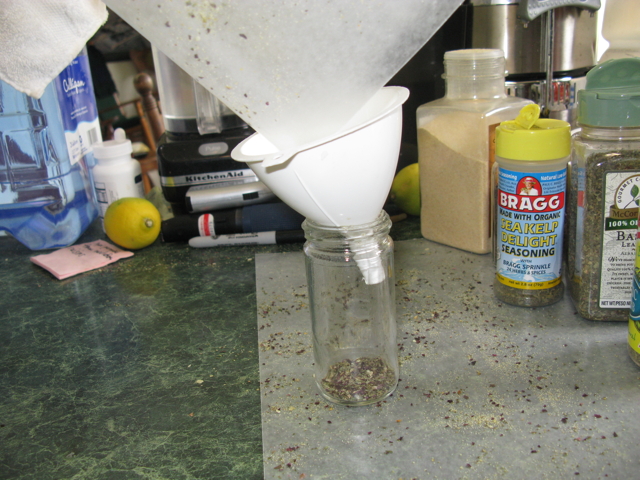
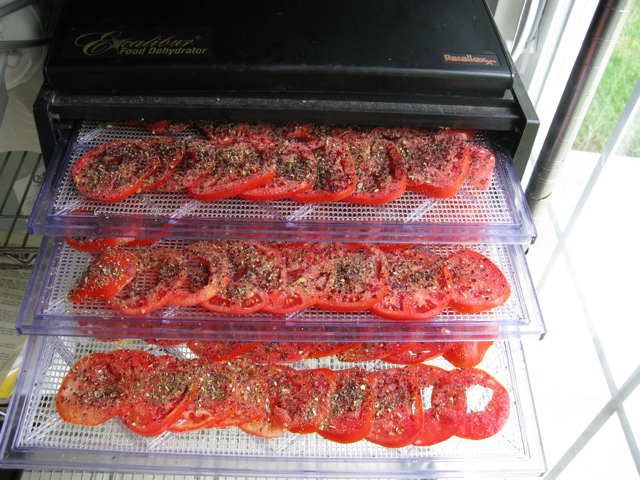
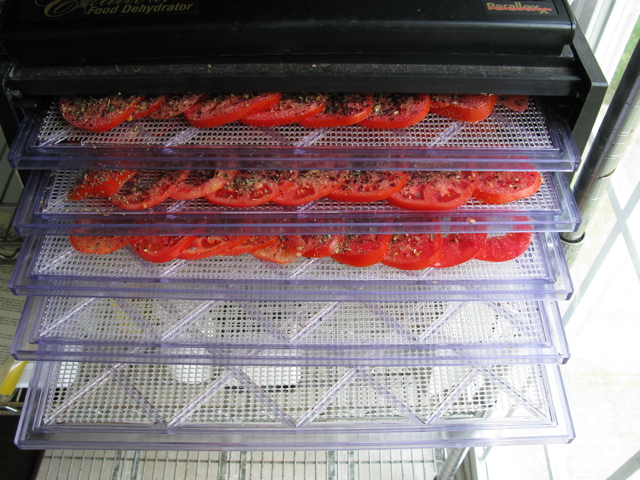
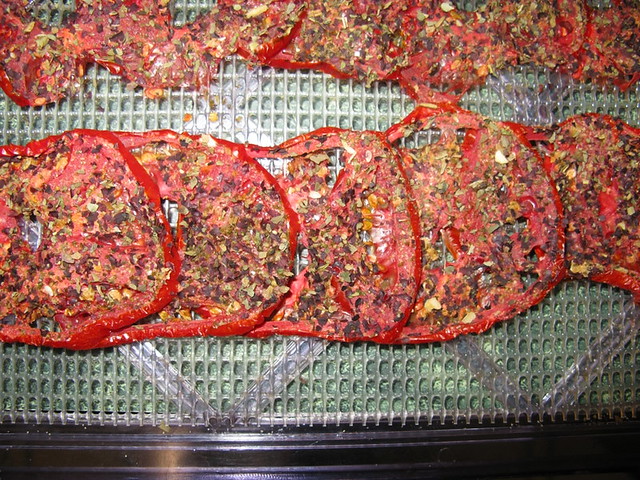





No comments:
Post a Comment